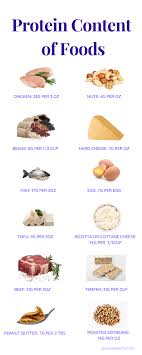Protein is one of the three major macronutrients your body needs in large amounts, alongside fats and carbohydrates. It plays a critical role in building and maintaining tissues, producing enzymes and hormones, and supporting overall health.
While general recommendations suggest a modest protein intake, the ideal amount can vary widely based on factors like age, activity level, muscle mass, and health goals.
The FDA suggests an average of 50 grams of protein per day for most adults. However, individual needs can vary depending on your lifestyle and body composition.
This article explores how protein needs change with different goals, including fat loss, muscle growth, pregnancy, and aging.
What Is Protein and Why Is It Important?
Protein is essential for nearly every function in your body. It helps build muscle, repair tissues, and supports healthy skin, hair, nails, and organs.
Proteins are made up of amino acids. While your body produces some of them, others—called essential amino acids—must be obtained from food.
Animal-based sources like meat, dairy, and eggs contain all essential amino acids. Plant-based diets can also meet protein needs with a mix of foods such as legumes, grains, tofu, and plant-based protein powders.
Protein and Weight Loss
Protein plays a major role in weight management. It helps you feel full, reduces cravings, and can slightly boost your metabolism.
Studies have shown that higher protein diets support long-term weight loss, reduce the risk of regaining weight, and may help prevent obesity-related conditions.
Protein for Muscle Growth and Strength
To build muscle, your body needs more protein than it breaks down. That’s why active individuals and strength trainers often eat more protein.
A 2018 meta-analysis found that 1.6 grams of protein per kilogram of body weight per day was effective for increasing muscle mass and strength when combined with resistance training.
Protein Needs During Pregnancy
Pregnant individuals need more protein to support the growth and development of the baby, as well as changes in their own body.
The USDA recommends around 70 grams per day during pregnancy, which typically makes up about 10–35% of daily calories.
Breastfeeding also increases protein requirements. Safe sources include lean meats, eggs, dairy, legumes, and low-mercury fish like salmon and sardines. Avoid high-mercury fish such as swordfish and king mackerel.
Higher Protein Needs in Other Situations
People with physically active lifestyles, including manual laborers and endurance athletes, generally need more protein.
Older adults also benefit from increased protein—1.0 to 1.2 grams per kilogram of body weight per day—to help maintain muscle mass and reduce the risk of age-related conditions like osteoporosis and sarcopenia.
Is Too Much Protein Harmful?
There’s a common belief that high protein intake can harm your kidneys. While people with kidney disease should follow medical advice and may need to limit protein, there’s no evidence that high-protein diets cause harm in healthy individuals.
In fact, for most people, eating more protein can be beneficial—especially when paired with a healthy, balanced diet.
Good Sources of Protein
You can get protein from a variety of foods, including:
Lean meats and poultry
Fish and seafood
Eggs
Dairy products like Greek yogurt and cheese
Legumes (beans, lentils, chickpeas)
Tofu and tempeh
Quinoa
Nuts and seeds
You don’t usually need to count protein grams—just aim to include a source of protein in every meal.
What “Grams of Protein” Really Means
Many people confuse the weight of food with the amount of protein it contains.
A 226-gram (8 oz) steak provides about 61 grams of protein.
A 46-gram egg offers roughly 6 grams of protein.
So, when nutritional labels list protein content, they’re referring to the actual grams of protein—not the weight of the food.
Protein Needs for the Average Person
If you’re relatively inactive and maintain a healthy weight, protein should make up 10–35% of your daily calories. That’s roughly 50–175 grams of protein per day on a standard 2,000-calorie diet.
Since there are more benefits than risks, many experts suggest aiming toward the higher end of that range, especially if you’re active or aging.
Bottom Line
Protein is a vital part of your diet. It supports muscle growth, tissue repair, hormone production, and much more.
While the standard guideline is 50 grams per day, your ideal protein intake depends on your age, activity level, health goals, and whether you’re pregnant or aging.
As long as you’re eating a variety of high-quality protein sources with each meal, you’re likely getting what your body needs to stay strong and healthy.

